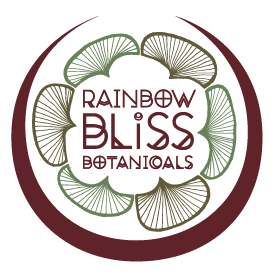The family Rosaceae holds beaming and beautiful healing powers for the heart, skin, and guts. The lusciousness of fuzzy Agrinomy tops, blackberry leaves and roots, hawthorn hips, rosa woodsii, rose hips and raspberry leaves promote external beauty and internal cleansing. This family boasts many tonic herbs, astringents, emmenagogues, uterine tonics, stomachics, and a few refrigerants. Rosaceae plant medicines are applied as tea, tincture, delectable cordials, or glycerites, and also topically in the form of a poultice or herbal bath to express their soothing qualities.
Due to the common presence of tannins in their vegetation, the actions of Rosaceae herbs tone tissue through binding and astringing. For example, Agrimony (Agrimonia eupatoria) influences mucous membranes to secrete just enough, rather than copious amounts of mucous and fluids. This is a tonic quality produced by an astringent action. Agrimony (and other Rosaceae astringents) also resolve dampness of spleen and stomach, treat acute diarrhea, cool the liver, and tone the urinary and female reproductive tissues. When essence or fluids are leaking, Rosaceae medicines like Cinquefoil (Potentilla canadensis) and Agrimony can bind and fix the phenomenon of "oozing." Thus, Agrimony is fantastic for leaky gut with heat in the liver. To direct Agrimony to the liver for hepatic healing action, pair with dandelion and to direct the astringent action to the urinary tract, pair with uva ursi leaf. In cases of hepatitis, the circulation to the gallbladder, liver, and gastrointestinal tract "are so off" that the hepatic cells don't receive the life-giving arterial blood when they receive the more toxic blood from the portal vein and intestines.*** Matthew Wood describes this phenomenon along with diarrhea and floating stools with oil and irregular or spontaneous expulsion of bile as "tension and relaxation combining to cause incorrect timing of functions." Since the tonic property of Agrimony promotes normal activity of fluids, it can be applied to conditions of internal misfiring, acid indigestion, cirrhosis of the liver, and kidney deficiency. The dynamic components of this particular Rosaceae herb combine well with nervines and also Solomon's seal as an astringent for toning tissue and resolving tension.
In Greek and European folklore, Agrimony has been used for warding off goblins, healing wounds, curing snakebites, and was once a tool for alleviating back pain in a mixture of smashed toads, Mugwort, and human blood.* It is still applied topically for wounds, throat gargles, and skin conditions today. In terms of meridians and organ systems, Agrimony and black mume plum both direct to the lungs. Agrimony, raspberry, Chinese rose hips, and Chinese raspberry all direct to the Kidneys.
Both Agrimony and Roses are held as "longevity tonics" due to their suggested cellular health promoting, anti-inflammatory and anti-cancer properties. Rosa canina, or rosehip seeds are a valued anti-inflammatory (topically or internally) and also support the immune system and hormonal balance.** Mamas and teenagers, and pretty much anyone with stretch-marks, acne scars, or sun-exposed skin can benefit from the topical application of rosehip oil as it has shown to smoothe the skin, tighten wrinkles, astringe loose tissues, and repair scars.
Roses and Hawthorn (Crataegus laevigata) have a profound common ground of heart healing, ceremonial, spiritual, and Shen nourishing benefits. Emotionally and physically, these plants support cardiovascular function and tonify the heart. Hawthorn's magical history dates back to famously housing fairies in the ancient times of Druids and is still revered to be a blessing in marriage ceremony, resembling love, much like roses. All parts of hawthorn are used, but the berries and leaves hold the mildly warm astringent action. Both roses and hawthorn can be made into jams and cordials. Personally, both of these herbs are transformational in their nature, as they have both helped me heal nervous tension and aid in my spiritual journey as constant bringers of light, truth, and compassion.
Rosaceae for Women's Health:
Raspberry leaf (Rubus ideaus) is a tonic, and widely valued by midwifes and mamas-to-be as a traditional uterus toning remedy that contains an alkaloid called fragine, which fortifies the uterus.** This can be taken as an infusion or glycerite during pregnancy to strengthen uterine health and prepare the body for birth.
Agrimony is administered to relieve heavy menstrual bleeding due to its coagulant properties, whereas Meadowsweet (Filipendula ulmaria) is more of a pain-relieving herb that can be applied internally as a tea for lower back pain. Both of these are women's allies in times of menstrual or hormonal stress along with abundant, intentional mistings of a rose hydrosol. Agrimony and Lady's Mantle can be applied topically for cuts and wounds and are also both emmenagogues. For excessive menstrual bleeding, Sheperd´s purse, potentilla, raspberry leaf, and dogwood berry can be applied as a tea or herbal bath.
Physically, the Rosaceae herbs share common botanical characteristics. According to Elpel's Botany in a Day, shared qualities include serrated leaves, five separate petals with similar styles, open flowers, multiple stamens, and many produce delicious edible fruits. Many Rosaceae flowers come together with various styles of pistils to form a fuzzy center with many outward reaching stamens.
Compiled with passion for Lesson 22 in my coursework with EastWest Planetary Herb School with Michael and Lesley Tierra.
Sources:
*www.botanical.com - Agrimony
A modern Herbal by Grieve
** Herbal Adventures with Susan Weed - The Rosaceae family
***Matthew Wood - Agrimony : The indispensable relaxant
